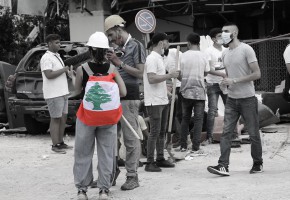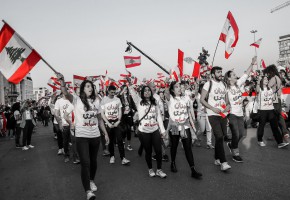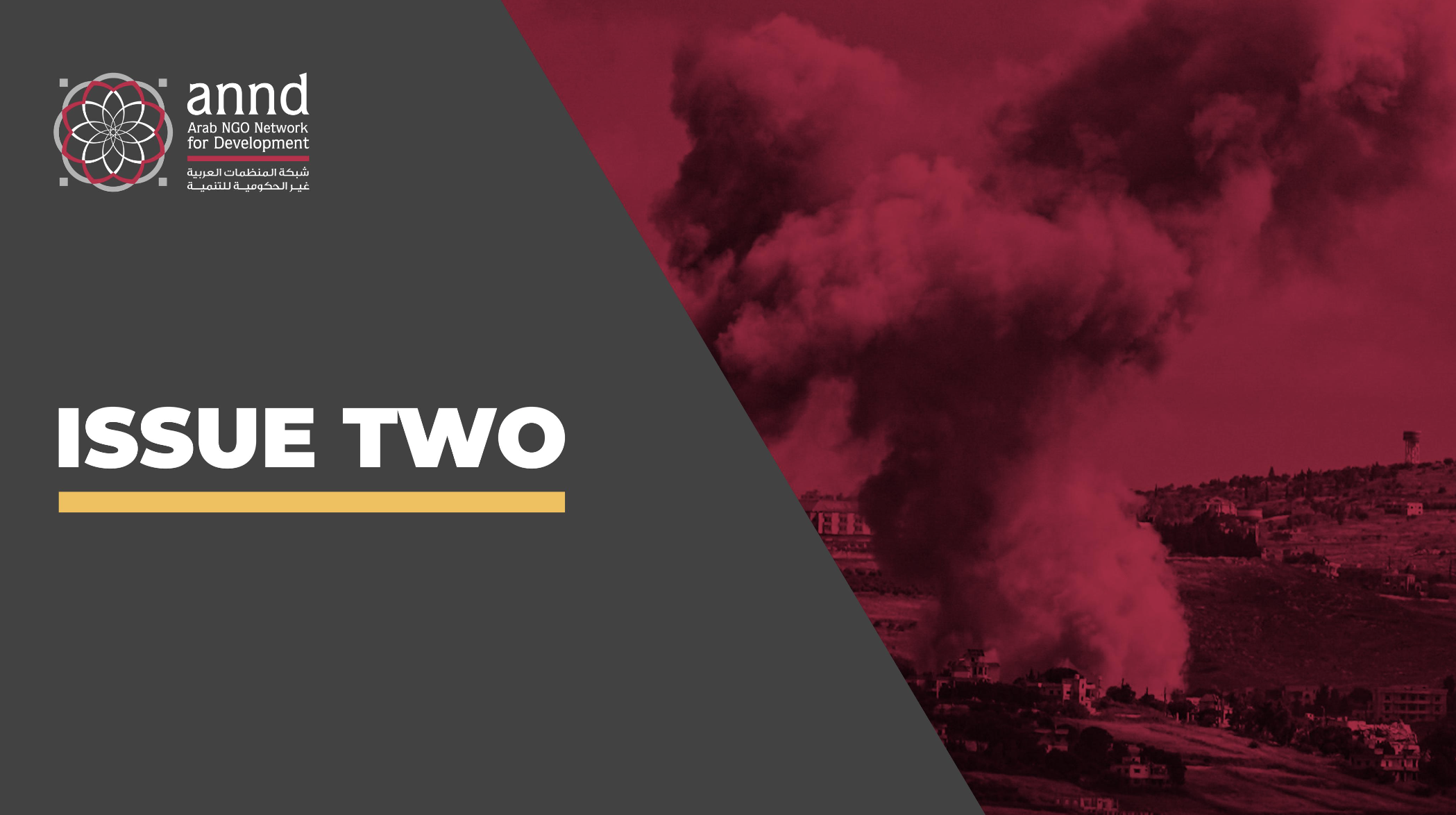
A Region on Fire
Issue Two - September 28, 2024
From the United Nations (UN) headquarters in New York, the Israeli Prime Minister described the UN as a ‘swamp of antisemitic bile.’ In his speech to the General Assembly on Friday, the 27th of September 2024, which saw a large number of diplomats walking out, he spoke about the latest developments surrounding the regional conflict, claiming that Israel ‘yearns for peace.’ In that same speech, Netanyahu confirmed that military operations would continue against Hezbollah until the former’s goals are achieved. Concerning Gaza, however, he asserted that Hamas ‘has got to go.’ He also gave the green light for the assassination of Hezbollah’s Secretary-General and the escalation of his war on Lebanon, all while at his residence in New York.
The speech delivered by the Israeli Prime Minister before the UN General Assembly on Friday, September 27, 2024, is of extreme gravity. It goes far beyond the ongoing war in Palestine and Lebanon.
Rather, what he expressed from the UN platform was the outright disregard and shunning of the universal human rights system and the assumption of a discourse of superiority over the nations and peoples whose representatives boycotted his belligerent speech.
Netanyahu deliberately addressed the world with unprecedented warlike language at the UN General Assembly, which was established to maintain peace in the world and uphold respect for human rights.
He described the UN as a swamp of anti-semitism, attacked the International Court of Justice and the International Criminal Court, and made the endorsement of his government’s policies—including genocide, excessive use of force, and killing of civilians under the pretext of assassinating one of his enemies—the sole criterion for civilization, democracy, and human rights.
He went so far as to order the assassination of Hezbollah’s Secretary-General in Lebanon while at the UN, in an unprecedented provocation to all the values represented by the foremost international institution.
This assassination was carried out through an airstrike that dropped 80 tons of explosives on a residential compound in the southern suburbs of Beirut.
It was impossible to determine the number of civilian casualties, as everything above ground in the area of the strike was obliterated.
A firm response to this model is a shared responsibility for all supporters of human rights, the right to development, and democracy in the world.
Netanyahu’s global model represents the bloody antithesis of the world desired by peoples of all nations who, just a few days prior, had adopted the Charter for the Future in the same General Assembly hall where the Israeli Prime Minister delivered his speech promoting bloody savagery as an alternative to international law.
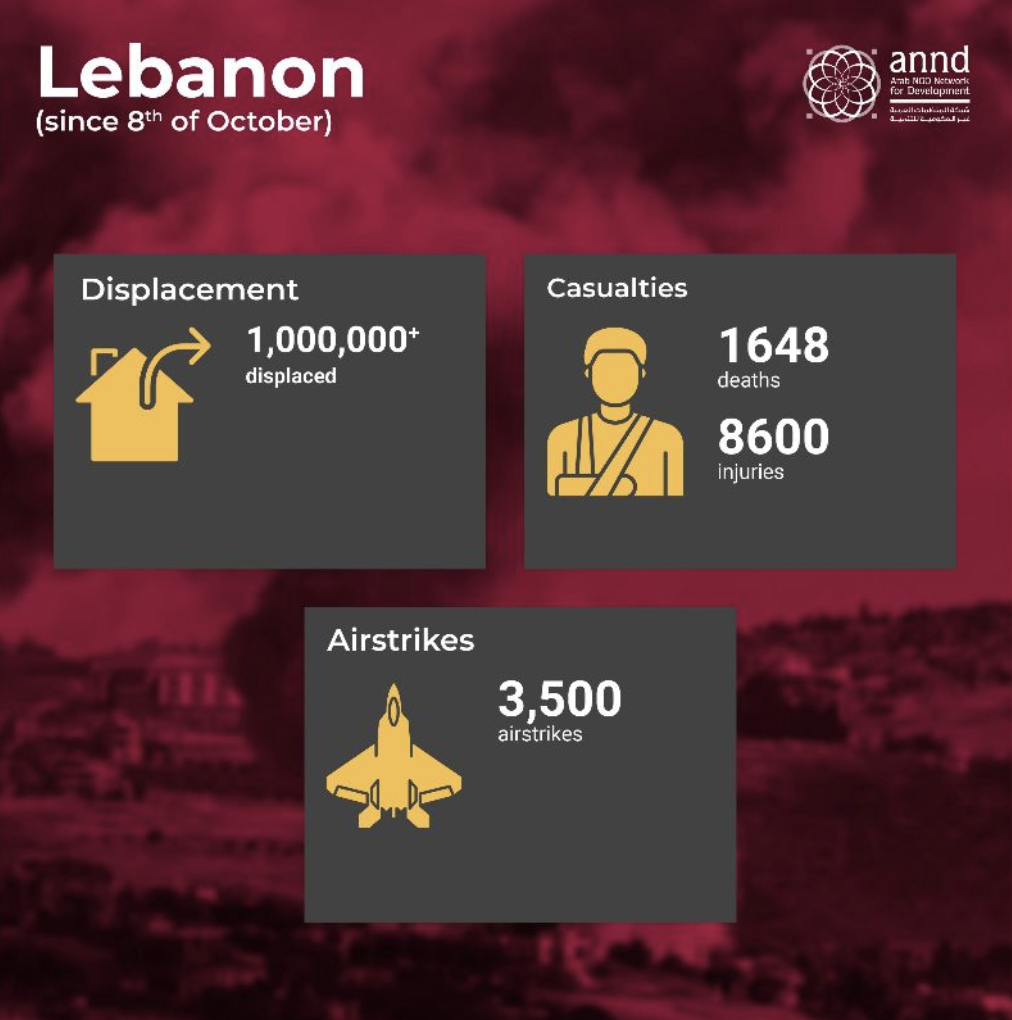
Unprecedented Escalation
After the series of operations that targeted top leaders in Hezbollah, Israel succeeded in assassinating Hassan Nasrallah, the group’s Secretary-General, a significant blow whose repercussions could sway internal and external balances of power. Israel continued its wave of air strikes targetting Lebanese villages and towns along with the southern suburbs of Beirut.
The bombardment of Hezbollah’s headquarters in the assassination operation resulted in the toppling of six residential buildings on the heads of their occupants, killing them all. Attempts to pull them out from under the rubble are ongoing. Israeli raids continued till Saturday morning, targeting villages and cities in the South and Beqaa.
According to relevant Lebanese authorities, since Monday, September 21, 2024, the number of victims has reached 783 dead, 2,312 injured, and one million displaced (not including the victims of the strike on Hezbollah’s headquarters). This brings the total death toll since the beginning of the war last October to 1,648 killed and 8,600 injured, while the number of attacks carried out by Israel on Lebanon has reached 3,500.
International Stances
A year after the outbreak of war between Lebanon and Israel, and more than a week into its tragic escalation, international and Arab efforts have so far failed to reach a ceasefire agreement. Despite the convening of the Security Council last Thursday at the initiative of France and joint Franco-American efforts to find a solution that would lead to a 21-day ceasefire as part of full compliance with UNSCR 1701, military operations continue to escalate.
It was recently announced that Qatar and Turkey, along with Egypt, have proposed a comprehensive initiative aimed at supporting Beirut. The initiative stems from regional concerns, primarily driven by fears that the developments could prompt internal factions to exploit the situation and amplify the chaos that has ensued so far. The initiative has clear internal goals, including deploying the army, convening a government meeting to demand the implementation of Resolution 1701, and ultimately making use of this historic moment to elect a President as an indicator of readiness for major compromises.
Regarding the assassination of the Secretary-General of Hezbollah, U.S. President Joe Biden considered it a ‘just’ measure, stating that America fully supports Israel's right to defend itself against Hezbollah, Hamas, the Houthis, and any other groups backed by Iran. In this context, Washington directed its Defense Secretary, Lloyd Austin, to the region to strengthen the position of U.S. forces in the Middle East, deter any aggression, and reduce the risk of escalation into a full-scale regional war.
Meanwhile, the European Union instructed airlines to avoid flying over Lebanese and Israeli airspace for a month.
Following the assassination, the Israeli army issued several statements regarding Israel’s preparations to launch a ground invasion into Lebanon. This was not limited to mere declarations of intent; Israel also decided to impose a military blockade on Lebanon, preventing cargo planes from Syria and Iran from landing or even from repairing the crossings that had been bombed. The blockade also includes targeting bulldozers repairing infrastructure at the crossings.
The military blockade includes preventing any cargo ships from reaching Lebanon from Iran or any other countries considered hostile to Israel.
As a result, the Lebanese Ministry of Transportation issued instructions to Beirut International Airport to not accept Iranian planes, following Israeli warnings that it would ‘use force’ if any aircraft from a hostile state landed in Lebanon.
Netanyahu renewed Israel’s threat to Yahya Sinwar and directly to Iran’s leaders. From the most elevated international podium, as eyes remained fixed on Lebanon, and the devastation in Gaza continues to no avail. Any efforts to broker a ceasefire and reach an exchange of hostages and prisoners have practically been halted.
Israeli Stances
Following the assassination, the Israeli army issued several statements regarding Israel’s preparations to launch a ground invasion into Lebanon. This was not limited to mere declarations of intent; Israel also decided to impose a military blockade on Lebanon, preventing cargo planes from Syria and Iran from landing or even from repairing the crossings that had been bombed. The blockade also includes targeting bulldozers repairing infrastructure at the crossings.
The military blockade includes preventing any cargo ships from reaching Lebanon from Iran or any other countries considered hostile to Israel.
As a result, the Lebanese Ministry of Transportation issued instructions to Beirut International Airport to not accept Iranian planes, following Israeli warnings that it would ‘use force’ if any aircraft from a hostile state landed in Lebanon.
Netanyahu renewed Israel’s threat to Yahya Sinwar and directly to Iran’s leaders. From the most elevated international podium, as eyes remained fixed on Lebanon, and the devastation in Gaza continues to no avail. Any efforts to broker a ceasefire and reach an exchange of hostages and prisoners have practically been halted.
Recent publications
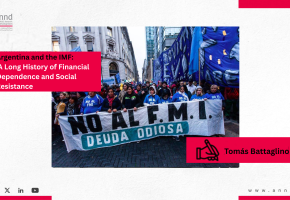
Argentina and the IMF: A Long History of Financial Dependence and Social Resistance - Tomás Battaglino
Related publications
